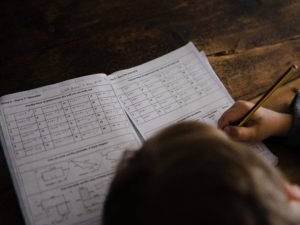Teachers are largely under appreciated. Being a longtime teacher, I know I’m biased. There are certainly bad teachers, but there are also bad lawyers, bad doctors, and bad construction workers. When you have excellent teachers though, they are invaluable. But no matter how great and dedicated a teacher is, there’s no question that the parenting of a student is still vital. Having taught for years, here are some key things you can do as a parent that will have your kid’s teachers singing your praises in the teacher’s lounge.
Help Your Child Be Organized

Some people are naturally more organized than others. I’ve always been organized, so it’s often hard for me to relate to people who are not. There is certainly a correlation between the organization of parents and the organization of their kid. This being the case, it’s understandable that if you are not organized as a parent, it may be difficult to model organization for your kid. But you need to do this!
I’ve worked with hundreds of kids and being organized is so important to a student’s success. There’s evidence that links organization skills to learning. At the most fundamental level, your kid should work to do the skills below consistently.
- Not have rotting, week old food in his/her backpack or desk (kidding, kidding…though I’ve definitely encountered this several times)
Here’s the serious list.
- Have a system for where papers/assignments go
- This can be folders or binders with dividers.
- Stuffing papers into a backpack is not a system.
- Complete assignments on the appropriate type of paper
- Assignments may be on loose leaf, or perhaps blank white paper, or construction paper another time.
- It’s not okay for an assignment to be done on a ripped sheet of paper or on the back of a piece of junk mail.
- Get in the habit of using a calendar or planner
- Even preschool kids are capable of grasping the concept of a calendar and that certain events occur on certain days.
- Older kids should have some sort of planner to keep track of items such as tests, projects, activities, and school events.
From my personal experience as a teacher, I see disorganized kids regularly stressed unnecessarily due to not having the above mentioned skills. If you’re unsure of how develop organizational skills with your kid, ask others for help or educate yourself by seeking resources. The bottom line is helping your kid to be organized will pay tremendous dividends not only in schooling but down the road as well.
Check In On Homework

I know there is a lot of debate currently on the meaningfulness of homework. Personally, I believe homework is a positive thing…as long as assignments are meaningful. For example, I teach math and the homework I assign are problems related to the skills from class that day. So, I think my homework does increase students’ competency of solving those types of problems. Beyond that, I do also believe homework enforces responsibility, which is a necessary habit to develop. As adults, there are daily tasks and chores we are responsible for even if we find little meaning in them.
Regardless of your personal views on homework, the bottom line is your kid may have homework. As a parent, you should check in with your kid regularly on homework, especially at the younger ages. This does not mean you need to sit down and do the assignments with your kid. Checking in means knowing what homework s/he has, which takes minimal time. This is a great way to be aware of what your kid is learning. Furthermore, it holds your kid accountable for doing the work if s/he knows you are checking in.
Be Aware of Your Child’s Progress and Grade

As a parent, you have a responsibility to be knowledgeable about your kid. For example, you pay attention to your kid’s health and respond accordingly as needed. Education should be no different. You have a responsibility to be aware of your kid’s educational progress and how your kid is doing in class. This doesn’t mean you need to micromanage and be a helicopter parent. That’s why I used the word “aware.” You just need to be aware and step in when needed.
What this looks like in action means routinely talking to your kid about what s/he is learning, knowing the general skills your kid should be doing at that age, and checking progress reports and report cards. These are your duties as a parent for your kid’s education. There are few things more frustrating as a teacher than getting puzzled emails or calls from parents late in the year at the lack of progress or poor grades of their kid. During the year, I never heard back from you after progress reports and report cards went out, and now you’re going to contact me with concerns in May?
Don’t Blindly Defend Your Child’s Actions Or Make Excuses

Of course, as parents, we are going to be protective of our kid. I am certainly no exception. But you can’t let your parenting instincts cause you to make excuses and automatically and blindly defend your kid. Sorry, your kid is not always an angel, no kid is. We all know that kids don’t always act the same when they are not around their parents.
Trust me, teachers have lots of things they’d rather do than call or email you with a made up story about some concern with your kid’s actions. If your first reaction in these situations is to be defensive, that’s a problem. It doesn’t mean your kid is not great, but just that your kid made a mistake. So, view it as an opportunity to learn and understand more about your kid. Don’t be that parent the teachers all complain about when they get together.
Know and Be Realistic About Your Child’s Strengths and Weaknesses

What parent doesn’t want to believe that their kid can be amazing? We want our kid to excel and we are proud when it happens. We might even smugly pat ourselves on the back. Obviously, the reality is our kid is not going to be amazing at everything. And you know what? That’s okay! You have to be realistic about your kid’s strengths and weaknesses.
I’ve had my share of parents who seem totally naive to their kid’s strengths and weaknesses. As a result, they have unrealistic expectations for their kid. Your kid is simply not an ‘A’ math student evidenced by the fact s/he continuously scores in the 70s on every assessment. Insisting s/he is an ‘A’ student doesn’t help. In fact, it tends to put extra stress on your kid who is already struggling, which may actually cause your kid to do struggle more. Don’t take this to mean that I’m saying not to push your kid. By all means, push, push, push! That’s how your kid will get better. Ah, and that’s the point! Push them to get better, and not always to be amazing.
In other words, push so those 70s start to possibly creep to the 80s, and maybe that’s just your kid’s potential in that specific area. It’s no different than something like running a mile. Not everyone has the potential to run a 5:00 mile. Maybe you run 9:00 miles and your potential can get you down to about 8:00 or even 7:00. The point is to set realistic goals. If you focus on teaching your kid to push to be better, chances are good your kid will end up being amazing in many areas.
Your Thoughts?
What thoughts do you have? Feel free to share them via the comments below. If you found this article interesting, you may also want to check out 6 Teaching Practices That Make For Effective Parenting.